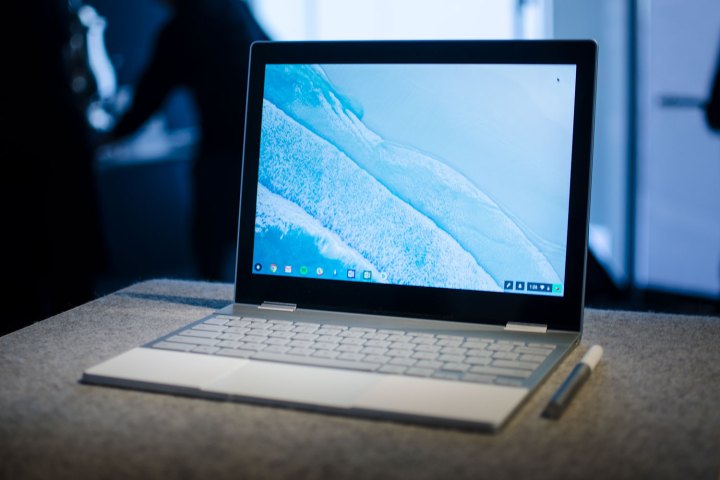
Beyond a lock screen and login form that will look relatively familiar to anyone who has used Google’s services, there are actually quite a few working components in the current version of Fuchsia, according to Ars Technica.
The Google bar at the bottom of the user interface is said to work in a limited capacity, although it’s rife with placeholders for the time being. It can search through local files and will offer a web launcher if you type in a URL.
The web browser is unfinished and won’t render many sites, although it’s, of course, able to display the Google homepage with no issues. There are a few other apps that work but they are said to be quite ugly and, in some cases, barely functional. Included are a video player that doesn’t play video (likely due to the lack of an internet connection), a music player that crashed, a straightforward file manager, an early iteration of a chat app, and some graphical demos.
While it’s rather impressive to see Fuchsia running on Pixelbook hardware at all, it’s clear that the laptop isn’t quite up to the task. Crashes are apparently frequent and the device is said to run very hot, even when something as simple as the lock screen is being displayed.
Google is remaining tight-lipped when it comes to Fuchsia and has yet to acknowledge its existence officially, so it’s difficult to get a read on its long-term plans for the project. Given that a big focus seems to be delivering a consistent user experience across computers and mobile devices, we can perhaps expect to see it factor into the company’s future hardware strategy.
Anyone brave enough to dive into the esoteric Fuchsia installation process can grab the source code here, but be warned: It’s not for the faint of heart.


